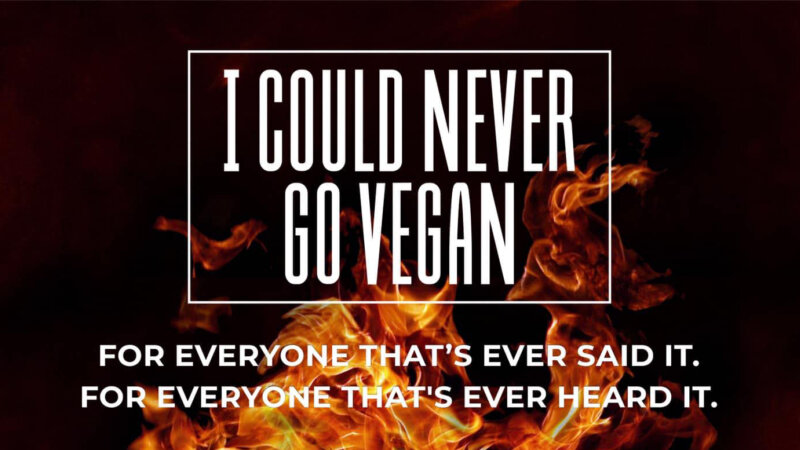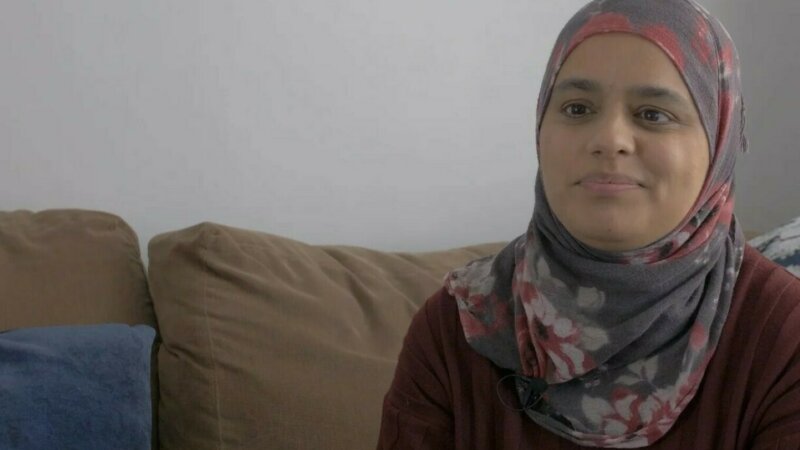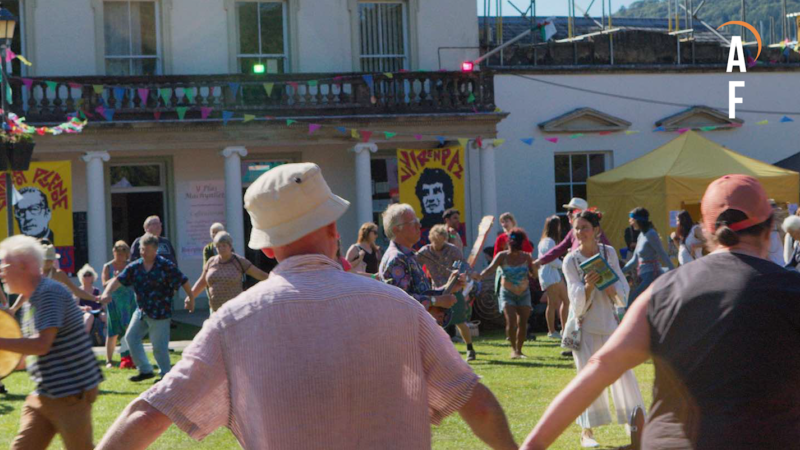Dheepan: Fear Eats the Soul / Listings
Dheepan (Jacques Audiard, 2016) tells the mesmerising story of a Tamil Tiger who flees Sri Lanka after losing his unit and his family in the violence, taking on the name Dheepan when he acquires false documents. As well as a false identity, Dheepan (Jesuthasan Antonythasan) acquires a fake family - a woman also desperate to leave, whose name becomes Yalini (Kalieaswari Srinivasan), and the young girl she finds after frantically searching the marketplace for an orphan.
Dheepan, Yalini and Illayaal (Claudine Vinasithamby) flee to France, much to Yalini’s distress, as she’d wanted to go to England, to her cousin in London. The fiction prevails as an interpreter helps the trio seem legitimate, and they’re accepted as asylum seekers and sent to a caretaking job in the drug-infested projects outside Paris.
Bewilderingly, numerous reviews of the film have praised what’s frequently termed its ‘social realism’, then lambasted it for its third act shift to action movie violence. This misses, to my mind, not just the film’s sensory flourishes and powerful visualisation of the all-too-real nature of PTSD, but also, perhaps more tellingly, the importance of the film’s status as a film in relation to its much-derided action sequence and its ending.
The level of reality at which these sequences operate is wide open to interpretation, and this makes Dheepan all the more remarkable. Much-lauded for its ‘social realism’, for instance, the film seems to me far more like melodrama. Its switch to violence followed by a swooningly happy ending only underscores still further its status as fiction. When the credits rolled, my question was whether the ending(s) represented a narrative reality or, instead, Yalini’s fantasy vision of how much better things would have been in London.
The melodrama of Dheepan is powerful and lingering, hearkening back to Douglas Sirk’s superbly observed 50s fare via the lens of Fassbinder’s Ali: Fear Eats the Soul (Angst essen Seele auf, 1974), rather than Todd Haynes’s Far From Heaven (2002). Ali: Fear Eats the Soul remakes Sirk’s 1955 All That Heaven Allows in the context of ‘Arab’ migrants to Europe, radically politicising the family tale.
Just as 'Dheepan' is not the protagonist of Dheepan’s real name, the central character in Ali is not really called Ali. He has just, the film wryly observes, taken on the moniker used for all dark-skinned immigrant men in Europe. Also as in Fassbinder’s film, the melodrama in Dheepan focuses not on the emotional highs and lows so much as on the subdued, daily grind of desperation experienced by its three central protagonists. As Yalini tells the uncomprehending drug lord, Brahim (Vincent Rottiers), when he asks her about her husband and child, and her life in France: “It’s all fake.”
I’m not convinced that Dheepan is social realism, although it is undeniably about a very real social problem – the treatment of migrants, including those fleeing horrific violence. Conflating a real social problem with ‘social realism’ is politically problematic, for a start, but perhaps the repeated assertions that the film’s ending lets it down are more important to challenge. First, criticisms that the climactic scenes in which Dheepan rushes to Yalini’s rescue with a machete, Molotov cocktail and stolen gun are ‘unrealistic’ seem too willing to ignore completely the reality of the dismal suburbs to which the refugees in Dheepan, as so many in real life, are sent. The violence of France’s drug dealers might be very different from that of Sri Lanka’s civil war, but is nonetheless very real, as Yalini feels so keenly. Coupled with the reality of post-traumatic symptoms experienced by so many fleeing from violence, to dismiss the drug dealers’ gun battle and Dheepan’s beautifully-filmed participation in it as incongruous strikes me as lazy, unnecessarily genre-bound criticism.
More importantly, these criticisms belie a closer look at the film. Not only does it seem – from visual as well as narrative clues, the least subtle of which is the camera closing in on Yalini’s eye as, blood-soaked, she and Dheepan embrace – that the final sequences in London are fantasy, but I think Dheepan’s heroic race into the bullet-ridden building probably is too. I believe the film’s ending renders it more fantastical and far darker than many critics acknowledge. Certainly, I fear that Illayaal is the only survivor of this migrant family’s traumatic journey.
Samantha Holland
|HOSTED BY SAMANTHA HOLLAND
Love & Mercy
Bill Pohlad, 2014
Sun 15 May | 7:30pm | 215 Sharrow Vale Road | £3 w/ cake and coffee
Sharrow Reels have this month opted to screen the Beach Boys biopic that paints a fascinating picture of Brian Wilson and the mental health difficulties he endured along with his fame. Critics have lauded it for excellent performances and for avoiding cliches about ‘madness’ and ‘creativity’.
sharrowreels.wordpress.com
The Jungle Book
Wolfgang Reitherman, 1967
Sun 15 May | 1:30pm | Bamforth Building, Burton Street, S6 2HH | £5
Handmade Cinema provides another of its innovative immersive film screenings, this time with a Disney classic, the contemporary remake of which is currently playing around the country. With props, face painting and singalongs, this is an excellent way to experience a fun-filled film.
handmadecinema.co.uk
Matar a un hombre (To Kill A Man)
Alejandro Fernandez Almendras, 2014
Mon 23 May | 6:30pm | Showroom | £8.30
A powerful character study of a man pushed to defend his family when law and bureaucracy fail them. Descriptions make it sound like the unfortunate Kevin Bacon vehicle Death Sentence (2007) and its ilk, but evidence from Sundance suggests this is a considerably more thoughtful meditation on the psychological consequences of being driven to violence.
showroomworkstation.org.uk
12 Angry Men
Sydney Lumet, 1957
Thu 26 May | 6pm | Showroom | £8.30
Still fascinating 60 years on, this film explores how decisions are made by jurors considering a seemingly watertight case of murder. Bringing up issues of race, age, family relationships and other prejudices, and focusing on Henry Fonda’s juror number 8 as the voice of reason, this is a sobering reminder of what’s at stake in a jury trial.
showroomworkstation.org.uk





